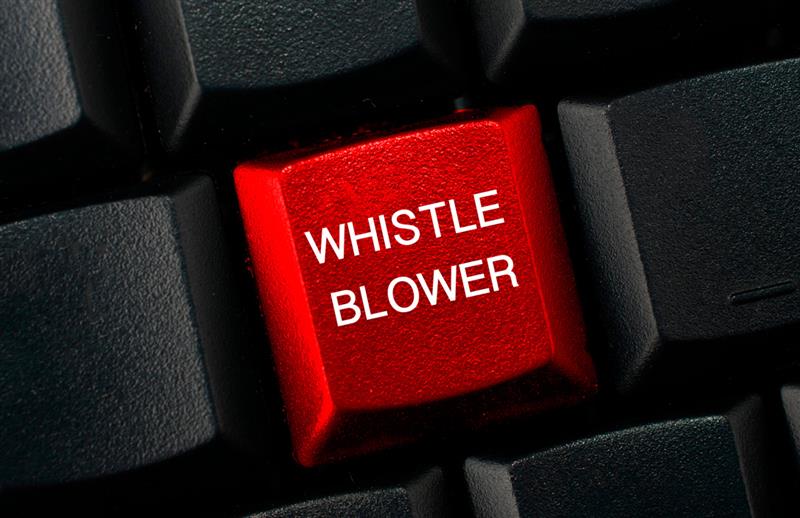
30 Jul 2025
IRS Whistleblower Program: Why It Matters for Honest Businesses
Most business people work hard to file on time and correctly. Too bad there are always a few who try their best to scam the system by underreporting income, concealing assets, or ignoring required filings. These fraudulent acts harm us all by shifting the tax burden to honest filers and giving dishonest competitors an unfair advantage.
The IRS employs more than just audits and data analysis to solve this issue. Additionally, it depends on individuals who are prepared to come forward and disclose tax infractions when they become apparent. The IRS Whistleblower Program is useful in this situation. Now is a good time to learn about the operation of this program and its significance, particularly for small businesses, as July 30th is National Whistleblower Appreciation Day.
What Is the IRS Whistleblower Program?
In order to encourage people to report tax fraud and other noncompliance, the IRS established the Whistleblower Program in 2007. A whistleblower may get 15% to 30% of the money recovered if they provide the IRS with reliable information that results in the collection of unpaid taxes.
This reward is more than just a token one. As a result of collections from noncompliant taxpayers totaling more than $7.5 billion, whistleblowers have been awarded more than $1.3 billion since the program's inception.
For instance, someone might be eligible for a sizable financial reward if they submitted comprehensive payroll records that revealed a widespread case of payroll tax evasion, and the IRS was able to collect millions of dollars as a result.
What Is New in 2025?
The IRS recently released its 2025 update for the program, and the results show how impactful it has become:
- 123.5 million dollars awarded to whistleblowers in FY 2024
- 474.7 million dollars recovered in unpaid taxes
- 14,926 award claims filed, which is a 13 percent increase from previous years
The IRS is also modernizing the program in several ways:
- A digital claim submission portal is being developed
- The case management system is being upgraded to handle reports more efficiently
- Direct deposit is becoming the standard method for paying awards
These changes make it faster and easier for whistleblowers to report violations and for the IRS to take action.
When Does a Tip Qualify?
Not every tip qualifies for an award. The IRS looks for information that is:
- Detailed – The more specific, the better
- Current – Outdated information is less likely to be useful
- Meaningful – The focus is on large-scale or ongoing violations
- Provable – The IRS must be able to verify the evidence provided
A vague statement such as “Company X does not pay taxes” will not qualify. However, providing payroll records, false invoices, or bank statements that clearly show deliberate tax evasion is exactly the kind of evidence the IRS is looking for.
Why This Program Matters for Small Businesses
If you run your business honestly, this program works in your favor.
Suppose you work in the same industry as a competitor. You comply with all regulations, file all necessary paperwork, and pay your payroll taxes. Your rival, meanwhile, underreports their income and evades paying thousands of dollars in taxes. They could cut their prices or increase their marketing expenditures and still make more money if there were no enforcement.
The whistleblower program helps level the playing field by holding dishonest competitors accountable and promoting fair competition.
How to Stay Out of IRS Trouble
The best way to protect your business from IRS scrutiny is to stay fully compliant with tax regulations.
That includes:
- Filing all required forms, such as W-2, 1099, and Form 941, on time
- Keeping accurate and detailed records of income and expenses
- Using payroll systems that meet IRS e-filing requirements
- Staying informed about changes in IRS rules and filing thresholds
Even small errors can draw attention. With the IRS improving its whistleblower program, it is reasonable to expect closer monitoring of businesses in the future.
How TaxProNext Helps You Stay Compliant
At TaxProNext, we make sure your business is always prepared for IRS compliance. Our services include:
- Precise payroll tax computations
- Easy and safe electronic filing for Form 941, W-2, and 1099
- For peace of mind, use IRS-approved filing formats.
- Automated reminders to ensure you never overlook a due date
- Professional advice on payroll tax regulations and necessary compliance
We do not just process your tax forms. We give you the confidence that your business is in full compliance, allowing you to focus on growth rather than worrying about IRS penalties or whistleblower reports.
The Bigger Picture: Data-Driven Compliance
Meeting deadlines is not the only aspect of modern compliance. To stay ahead of possible issues, it involves using precise data and meticulous record-keeping. When the proper mechanisms are in place, you can:
- Get up-to-date information on your tax responsibilities
- Track and verify every submission you make to the IRS
- Detect and correct errors before they become serious issues
- Maintain transparency for audits or IRS inquiries
A combination of accurate data, consistent filing, and good documentation is your best defense against IRS enforcement actions.
Final Thoughts
The IRS Whistleblower Program is becoming stronger and more efficient each year. This is good news for honest taxpayers and a clear warning for those who try to avoid paying their fair share.
For small businesses, the message is simple:
- File on time
- Keep accurate records
- Work with experts who understand compliance.
At TaxProNext, we make sure you meet every requirement and stay on the right side of IRS regulations. Our goal is to help your business grow while avoiding the headaches of penalties, audits, and whistleblower claims.
Need help staying IRS compliant?
Let TaxProNext handle your payroll tax filings from start to finish.
